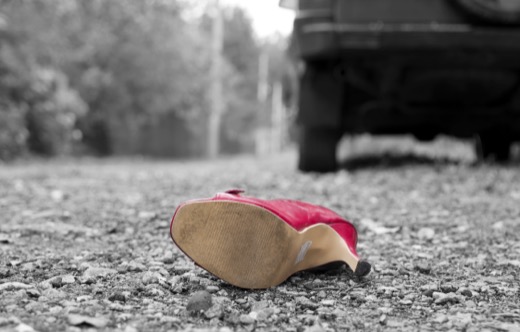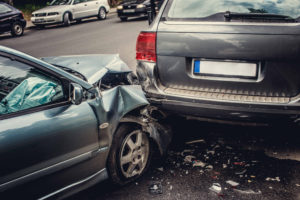A tragic hit and run accident has claimed the life of a young mother in Columbus. According to police, the woman was crossing an intersection at Brice and Tussing Roads on her way to a convenience when she was struck by a vehicle. The driver allegedly got out of his vehicle and looked at his vehicle, but then left quickly. A witness stopped at the accident scene and contacted police, who are now asking for the public’s help in identifying and locating the hit and run driver.
Seeking a Remedy – What Options Are Available for Survivors?
Cases such as these are hard to read about. This young mother has left behind a young child that now faces growing up without his or her mother, and other family members will undoubtedly feel the loss for a long time as well. The question arises of what remedies may be available to the survivors; one potential remedy that survivors of accident victims such as these may opt to pursue is a wrongful death action. When the death of a person is caused by a wrongful action, whether it happens accidentally or intentionally, the surviving family member(s) may file this type of lawsuit to be compensated for having to live without their late family member. Ohio Revised Code 2125.01 sets forth the law with respect to wrongful death actions and states that when someone’s death is the result of a wrongful act, and if the death had not occurred the injured party would have been able to file a lawsuit and recover damages, then the survivors of the deceased are able to file a wrongful death action and recover specific damages such as compensation for the earnings, emotional support, and comfort that they will no longer enjoy due to the death of their loved one.
Who May File a Wrongful Death Action?
Only certain people may file an action for wrongful death when they lose a loved one in Ohio. Plaintiffs are limited to the surviving spouse and/or children of the deceased, the parents of the deceased, or next of kin. This group of people have presumably suffered damages as a result of the wrongful death, which allows them to seek recovery of their damages through the court process. Other family members including brothers, sisters, and grandparents of the deceased are not presumed to have suffered loss for the purposes of a wrongful death action, but if they are able to prove in court that they have, in fact, suffered a loss for which they should be compensated, the court has the authority to allow them to bring their case for consideration.
Is Anyone Barred From Bringing a Wrongful Death Action?
Interestingly, but understandably, parents who abandon their child have no right to any benefits under a wrongful death action and are specifically excluded from those who may bring an action. In this type of situation, if the representative of the deceased child knows or reasonably believes that the child was abandoned, and the parent files an action for wrongful death, the personal representative may file a motion with the court asking to court to enter an order preventing the parent from recovering any damages for the death of their abandoned child. This matter would be, of course, settled through court hearing process.
What Damages May Be Awarded to a Plaintiff?
Determining the amount of damages that is appropriate is a task handled by the jury or court after consideration of a number of factors. The amount can be determined by either the jury or the court and ordered by the court trial, or a defendant may enter into a settlement agreement with the plaintiff(s) for an agreed upon amount. The factors that are generally considered by the jury or court when making a determination of a fair amount may include any or all of the following, as applicable:
- Loss of support, which is typically determined based on an analysis of the earning capacity of the deceased;
- Loss of services;
- Loss of companionship, including care, assistance, teaching, guidance, attention, and protection, among others, suffered by the survivor due to the loss of the deceased;
- Loss of expected inheritance; and
- Mental anguish suffered by the survivor as a result of the death of their loved one.
One thing to note is that, in the event a plaintiff has remarried since the death of their spouse, the court may take that factor into consideration when making its determination about the amount of damages that is appropriate to be awarded. It would seem only appropriate that if the spouse has remarried, the damages awarded to him or her would be less than if he or she had not remarried and continues to be solely responsible for their own support. Certainly the length of time that a widow or widower remains unmarried after the death of their spouse will affect the jury’s or court’s decision about how much compensation is appropriate. Additionally, any action filed for wrongful death must be filed within two years of the death itself; an exception to this two-year statute of limitations would be for actions filed for wrongful death based on product liability claims, in which case the statute of limitations is 10 years.
The Ohio Car Accident Lawyers Is Here for All of Your Auto Accident Matters
If you have been injured in an accident, or if you have lost a loved one as a result of an auto accident, contact the Ohio Car Accident Lawyers . Our seasoned professionals have a wide range of experience representing auto accident victims in all types of cases. An essential component of a successful case is having an attorney you can rely on to fight for your rights and help you get the recovery you deserve. The dedicated auto accident attorneys in Cincinnati, OH at the Ohio Car Accident Lawyers will work with you to help you understand those rights as well as your responsibilities under Ohio law. Allow us to help you today – contact the Ohio Car Accident Lawyers today.





